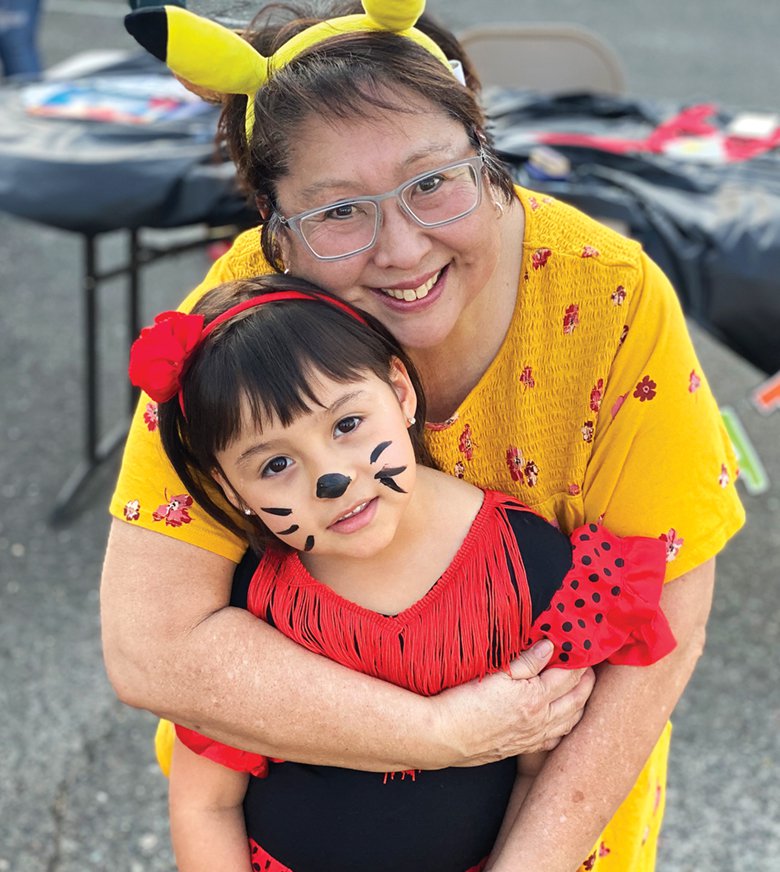
Santa Rosa City Schools Superintendent Diann Kitamura is ACSA’s 2020 Ferd. Kiesel Memorial Distinguished Service Award winner.
Kitamura a champion for every child
November 2, 2020
Name: Diann Kitamura
Award: Ferd. Kiesel Memorial Distinguished Service Award
Title: Superintendent, Santa Rosa City schools

A crusader for equity and a source of steady leadership during crisis, Superintendent Diann Kitamura is an outstanding example of how to be a champion for every child.
Kitamura is the winner of ACSA’s highest honor, the Ferd. Kiesel Memorial Distinguished Service Award, which is bestowed each year upon one individual who has made a significant contribution to education. The award is named after Ferd. Kiesel, ACSA’s founding president and a man whose personal commitment to students, and to ACSA, was exemplary.
Kitamura began her career in education 34 years ago as an agriculture teacher, which gave her the opportunity to coach students in project-based learning. Her principal at the time tapped her for her next position: school counselor.
“From school counselor to superintendent, the leadership positions I have had have been at the request of another leader who believed in my ability before I did,” she said.
Along her administrative journey, she also served as an educational consultant and founded a nonprofit called 4C the Power, which seeks to leverage “creativity, culture, community and confidence” to improve outcomes for Asian students.
“When asked what these students’ interests were, they said hip-hop music, b-boying, and art. I searched for artists in these genres that were also Asian to provide workshops for the students,” she said. “Our initial work in the Grant District (now Twin Rivers) resulted in Hmong and Cambodian students who participated in the 4C workshops having an increase in attendance in school.”
At each district she worked in, Kitamura looked for ways to ensure the success of every student. When she reached Santa Rosa City Schools in 2013, she started eradicating historical policies and practices that negatively impacted students. One policy required high school students to choose between university and vocational pathways.
“These two pathways did not match the demographics of our school district, with the vocational pathway enrollment being primarily Latinx, English learners, and special education students,” she said. “There were several other discriminatory policies related to attendance, grade level assignment, placement in courses, and resource allocation that were discovered and eliminated.”
Her dedication to serving students who have been marginalized because of race, gender, sexual orientation, poverty or disability is deeply personal.
“The stories of my mother who returned as an 8th grader from Amache Internment Camp have shaped me as an educator. The most significant impact was the treatment as a citizen in public education upon her return to school,” Kitamura said. “Her teacher openly discriminated against her by ignoring her, throwing away her assignments, excluding her from being a part of the class. The racist and degrading treatment continued on the bus as she was shunned and bullied riding to and from school. Her stories ignited a drive in me to ensure that all students feel included and are provided equitable resources to ensure equal outcomes.”
Kitamura is proudest of transforming the culture in her school district through relationships, professional development, student voice, and board policy changes, which include establishing ethnic studies as a graduation requirement and K-12 area of study.
“Not only do our policy changes reflect our equity stance, but I am also so proud of our Board of Trustees who along with me created a mission, vision and priorities centered on the students as agents of their learning and as cultural assets to be valued,” she said.
Although leading for change is never easy, Kitamura faced the biggest challenge of her career in 2017 when the Tubbs Fire ravaged parts of Napa, Sonoma and Lake counties. The blaze killed 22 people and destroyed more than 5,000 structures, including one of her district’s elementary schools and the school farm.
Kitamura was called upon to lead her community through the crisis. She simultaneously coordinated efforts with state and federal emergency agencies, worked with scientists and engineers during clean-up efforts, and handled calls with the media, legislators, donors and insurance adjustors, all while recognizing the trauma faced by her now-homeless students, teachers and staff.
Kitamura’s doctoral dissertation was born out of her leadership experience during and after the Tubbs Fire: “The most important conclusion of the doctorate was the necessity of collaboration and networking with socio political decision-makers in times of leading an organization through a crisis,” she said.
Even through the COVID-19 pandemic and new wildfires this year, Kitamura insists on seeing the positives — business donors have funded a new Integrated Wellness Center to support those affected by wildfires, the district now has more school counselors to provide therapy, and schools continue to make progress through MTSS and restorative practices.
“The strength and resilience of our students and staff is another bright spot,” Kitamura said. “These are just a few examples of what has risen from the ashes of the Tubbs Fire.”
